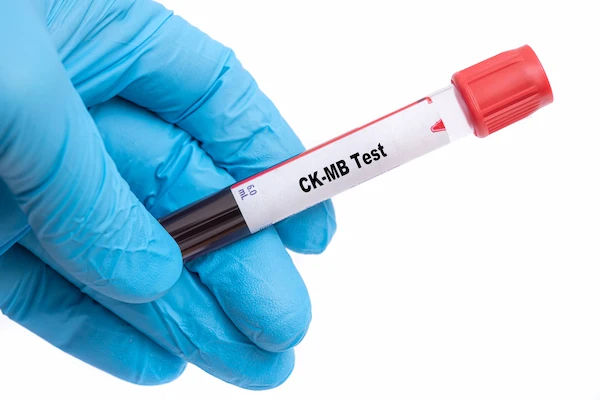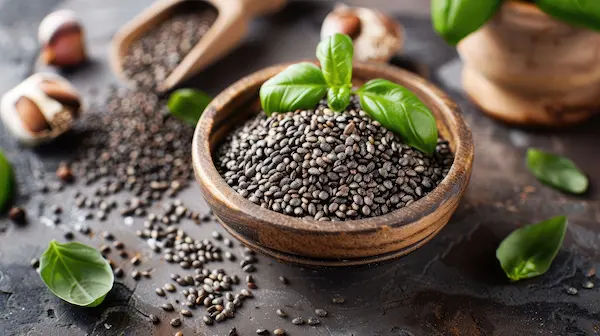Guide to Indian Diet Plan Pregnancy
Explore a healthy Indian diet plan for pregnancy, including essential nutrients, recommended foods, and tips to support the health of both mother and baby.


Congratulations on your pregnancy! This incredible journey is one of transformation, and the food you eat is the primary fuel for both you and your growing baby. An Indian diet plan for pregnancy is not about strict restrictions but about embracing the incredible diversity and nutritional wealth of traditional Indian foods. This guide will walk you through a trimester-by-trimester plan, highlight Indian superfoods, and provide practical tips to ensure you and your baby get the best possible start, all within the familiar and delicious framework of Indian cuisine.
Why a Tailored Indian Diet is Crucial During Pregnancy
Pregnancy increases your nutritional needs significantly. Your body requires more vitamins, minerals, protein, and healthy calories to support fetal development, placental growth, increased blood volume, and your own changing body. A generic diet might not cut it. An Indian pregnancy diet is powerful because it leverages locally available, seasonal, and culturally appropriate foods that are often naturally rich in the exact nutrients you need, like folate from leafy greens, calcium from dairy, and iron from lentils and legumes. This approach ensures you meet your targets without feeling like you're on a foreign, unsustainable eating plan.
Consult a Top Gynecologist
Key Nutrients & Their Indian Food Powerhouses
Before we dive into the meal plans, let's understand the building blocks of a healthy pregnancy diet and where to find them in your kitchen.
Folic Acid (Folate): The Neural Tube Defender
Crucial in the first trimester to prevent neural tube defects.
Indian Sources: Deep green leafy vegetables like spinach (palak) and mustard greens (sarson), lentils (dal), chickpeas (chana), okra (bhindi), and nuts.
Iron: The Oxygen Carrier
Prevents anemia and ensures adequate oxygen supply to your baby. Pair with Vitamin C for better absorption.
Indian Sources: Lentils, legumes, green leafy vegetables, dates, jaggery, pumpkin seeds, and fortified cereals. (Note: The iron in plant-based foods is non-heme iron, so combine with Vitamin C).
Calcium: For Strong Bones & Teeth
Builds your baby's skeletal system and protects your bone density.
Indian Sources: Milk, yogurt (dahi), buttermilk (chaas), paneer, cheese, sesame seeds (til), ragi (finger millet), and almonds.
Protein: The Building Block
Essential for the growth of fetal tissue, including the brain, and your expanding uterus and breasts.
Indian Sources: Lentils (dal), legumes (rajma, chana), milk, paneer, yogurt, nuts, seeds, eggs, chicken, and fish.
DHA: The Brain Booster
An omega-3 fatty acid critical for your baby's brain and eye development.
Indian Sources: Fatty fish like salmon and sardines (ensure they are low-mercury), walnuts, flaxseeds (alsi), and chia seeds.
Trimester-by-Trimester Indian Diet Guide
Your nutritional priorities shift as your pregnancy progresses. Here’s how to adapt.
First Trimester (Weeks 1-12): Nausea Management & Foundation Building
The focus here is on folate and managing morning sickness. Don't worry about calorie increase yet.
Diet Focus: Small, frequent meals. Bland, easy-to-digest carbohydrates. High folate intake.
Sample Meal Plan:
Early Morning: Ginger tea or lemon water with a few almonds.
Breakfast: Moong dal cheela with mint chutney or a bowl of poha.
Mid-Morning: A fruit or a handful of roasted peanuts.
Lunch: Jeera rice, a simple dal, and a well-cooked vegetable.
Evening: A glass of milk with a pinch of turmeric or a banana.
Dinner: Vegetable khichdi with yogurt.
Second Trimester (Weeks 13-27): The Energy & Growth Phase
Nausea typically subsides. This is the time to ramp up calories (approx. +300-350 kcal/day), protein, iron, and calcium.
Diet Focus: Iron-rich foods, calcium-rich foods, and high-quality protein.
Sample Meal Plan:
Early Morning: A handful of soaked nuts and dates.
Breakfast: 2 vegetable stuffed parathas with paneer or a bowl of oats upma with vegetables.
Mid-Morning: A bowl of fresh fruit or a glass of buttermilk.
Lunch: 2 whole wheat rotis, a cup of dal, green leafy vegetable sabzi, a bowl of yogurt, and a small salad.
Evening: A handful of roasted makhana (fox nuts) or a ragi cookie with milk.
Dinner: Brown rice, chicken curry/fish curry (well-cooked) or paneer bhurji, and a side of raita.
Third Trimester (Weeks 28-40): Final Growth Spurt & Preparation
The baby gains the most weight now. You need the highest calories and nutrients. Focus on DHA for brain development and fiber to combat constipation.
Diet Focus: Omega-3s, fiber, and continued high intake of all micronutrients.
Sample Meal Plan:
Early Morning: A glass of warm milk with a spoon of ghee.
Breakfast: Besan chilla stuffed with vegetables and cheese.
Mid-Morning: A smoothie with banana, yogurt, and a spoon of flaxseed powder.
Lunch: 2-3 rotis, spinach dal, a vegetable, salad, and a bowl of yogurt.
Evening: A bowl of sprouted moong chaat.
Dinner: Quinoa pulao with vegetables and dal.
Foods to Avoid or Limit During Pregnancy
While Indian food is nutritious, some common items need caution:
Raw or Undercooked Foods: Avoid raw salads from outside, unpasteurized milk/cheese, undercooked eggs or meat.
High-Mercury Fish: Avoid shark, swordfish, king mackerel.
Excessive Caffeine: Limit chai and coffee to 1-2 small cups a day.
Unwashed Fruits & Vegetables: Always wash thoroughly to avoid toxoplasmosis.
Excessively Spicy or Oily Food: Can aggravate heartburn and indigestion.
Certain Herbs: Avoid large medicinal doses of herbs like fenugreek (methi) seeds, aloe vera, and hibiscus.
Managing Common Pregnancy Problems with Indian Diet
Below are a few pregnancy problems that can be managed with Indian diet,
Nausea & Morning Sickness: Sip on ginger (adrak) tea, lemon water, or chaas. Eat small, dry snacks like crackers or toast first thing in the morning.
Constipation: Increase fiber intake through whole grains (oats, jowar, bajra), fruits like papaya and pears, vegetables, and drink plenty of water and fluids like sherbets.
Heartburn & Acidity: Eat smaller meals. Avoid fried, spicy, and acidic foods. Sip cold milk or eat a spoon of yogurt.
Leg Cramps: Ensure adequate hydration and include calcium and magnesium-rich foods like bananas, yogurt, and nuts.
Sample Full-Day Indian Pregnancy Diet Plan
| Time | Meal Option 1 (Vegetarian) | Meal Option 2 (Non-Vegetarian) |
| :--- | :--- | :--- |
| Early Morning | Warm water with lemon & honey | Soaked almonds & walnuts |
| Breakfast | Vegetable oats upma + glass of milk | 2 Egg omelette with veggies + whole wheat toast |
| Mid-Morning | Banana & a handful of peanuts | Fruit salad with chia seeds |
| Lunch | 2 Roti, Dal, Palak Sabzi, Bowl of Curd, Salad | 2 Roti, Chicken Curry, Lauki Sabzi, Raita |
| Evening | Sprouted Chaat OR Makhana | A glass of buttermilk (chaas) with flaxseed |
| Dinner | Moong Dal Khichdi + Papad | Grilled Fish + Steamed Vegetables + Dal |
| Bedtime | A glass of warm turmeric milk | A glass of warm milk |
Conclusion
Embracing a healthy Indian diet plan during pregnancy* is one of the most empowering things you can do for yourself and your baby. It’s a journey of choosing nutrient-dense, familiar foods that nourish and comfort you through each stage. Remember, this guide is a template, not a strict rulebook. Every pregnancy is unique, so it's essential to work closely with your doctor or a registered dietitian to tailor a plan that addresses your specific health needs, cultural preferences, and any pregnancy-related conditions. Trust your body, enjoy the process of nourishing new life, and savor the delicious, wholesome foods that make Indian cuisine so special.
Consult a Top Gynecologist
Consult a Top Gynecologist

Dr. Pallab Roy
Obstetrician and Gynaecologist
6 Years • MBBS, MS Obstetrics & Gynecology
Kolkata
Dr Pallab Roy, Kolkata
(25+ Patients)

Dr. Sanjan Das
Obstetrician and Gynaecologist
15 Years • MBBS,MS
Bengaluru
Apollo Clinic, Sarjapur Road, Bengaluru

Dr. Bidisha Roy Choudhury
Obstetrician and Gynaecologist
17 Years • MBBS , DNB(Obstetrics & Gynaecology)
Bansdroni
Siddhita Healthcare., Bansdroni

Dr. Jyothi Rajesh
Obstetrician and Gynaecologist
22 Years • MBBS, DGO(DNB)
Bangalore
Apollo Clinic Bellandur, Bangalore

Dr. Parul Sharma
Obstetrician and Gynaecologist
8 Years • MBBS, MS (Obstetrics & Gynaecology)
New Delhi
THE DOCTORS NESST, New Delhi




